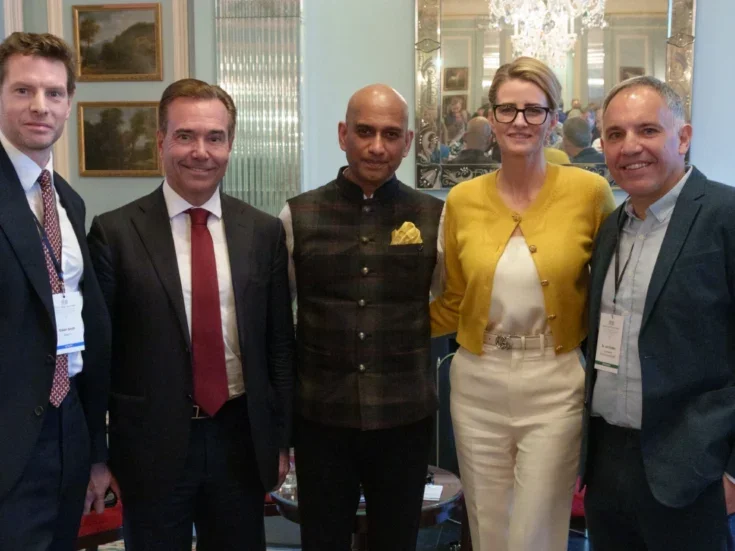
Hiding is no longer an option for successful individuals, but families can start to sit down and have sincere, open, and engaging conversations about what they want to put out there, says Jordan Greenaway
There is a deeply unsettling scene in the original movie of The Invisible Man. In the fuzzy, black-and-white, 1930s version, we see the protagonist, Dr. Jack Griffin, slowly unwraps his bandaged face in fits of laughter, revealing his invisibility for the first time to a group of terrified policemen standing in the doorway.
There is something about invisibility that strikes at the heart of our psyche: the idea of being able to get away with unknown actions without detection, discovery, or accountability strikes us as deeply unnatural. We fill that unnatural void with our worst suspicions, conjectures, and misgivings.
We cannot help but inwardly ask: What have they been up to? What are they getting away with? What are they hiding?
And, yet, anonymity is exactly how many private clients are trying to manage their reputations today, especially online. In fact, from my own professional experience, many individuals’ proactive reputation management strategy amounts to ensuring that there is no, or very little, information about them online — an approach that is sometimes mistakenly encouraged by their closest advisers.
These people wrongly believe that the lack of a digital profile, whilst not necessarily engendering a positive reputation, does not leave them with a negative one either. Instead, they live out their professional and personal lives under the illusion that they have a neutral reputation or perhaps no reputation at all, having opted out from needing to make a decision either way.
But, we only need to reflect on human nature to see how misguided this whole approach is: when you search someone’s name and find very little information about them, or — should I say — very little of tangible substance about them apart from passing mentions on company registries, you do not think of them as having a neutral reputation. At best, it raises open questions about their credibility. At worst, it leads us down the road we have already trodden with the invisible man, asking ourselves a set of increasingly dark questions about their success, source of wealth, and otherwise.
This is not mere instinct. There’s evidence to bear this out too. In fact, 41 per cent of people say they would feel ‘more negatively’ about a wealthy individual if they could not find relevant information of substance about them online, according to new research by Transmission Private. The figure is an even higher 50 per cent amongst people over the age of 50 years old.
This has clear follow-on ramifications for business. In a world where dealmaking depends on an individual’s ability to command respect, credibility, and confidence amongst their business peers, potential partners, political stakeholders, the local community, and financial institutions, reputation is key. And in a world where these reputational judgments are increasingly made online at the mere click of a button, private clients are putting themselves at a disadvantage by pursuing anonymity.
But while I am frustrated by the sheer volume of people who have unquestioningly chosen this route as a way to manage their digital profile – as well as the lack of sophisticated discussion about whether this is truly the right choice – that is not to say I do not understand the underlying emotional rationale.
Many successful individuals and families, understandably, want to limit the amount of information about themselves in the public domain and online to avoid personal exposure, protect their privacy, and safeguard their security. This is especially true today when anti-enterprise and anti-wealth sentiment seems to be unfortunately on the rise.
But, sadly, this justified caution about overexposure is too often misinterpreted by successful individuals as a need for complete – or near-complete – digital invisibility, which ends up damaging the very reputations they are trying to protect in the first place. Instead, there is a sophisticated and delicate balance to be struck here: protecting the privacy of the family, whilst a story is told about them in a careful and sensitive way.
There is, however, a positive flip-side to this revelation: having accepted that hiding is no longer an option, successful individuals and families can start to sit down and have sincere, open, and engaging conversations about what they want to put out there. Having recognised the need to say something, it becomes a question of what should it be?
Jordan Greenaway is Managing Director of Transmission Private, a PR, media, and communications agency for successful individuals and families. Their recent research note, Hiding Is Not an Option, was published in November 2020.
Read more
Here’s how to talk about inheritance
A ‘complete rethink’ of the fight against global corruption is needed
Coleen, Rebekah, and why there’s no such thing as an ‘almost’ failed mediation







